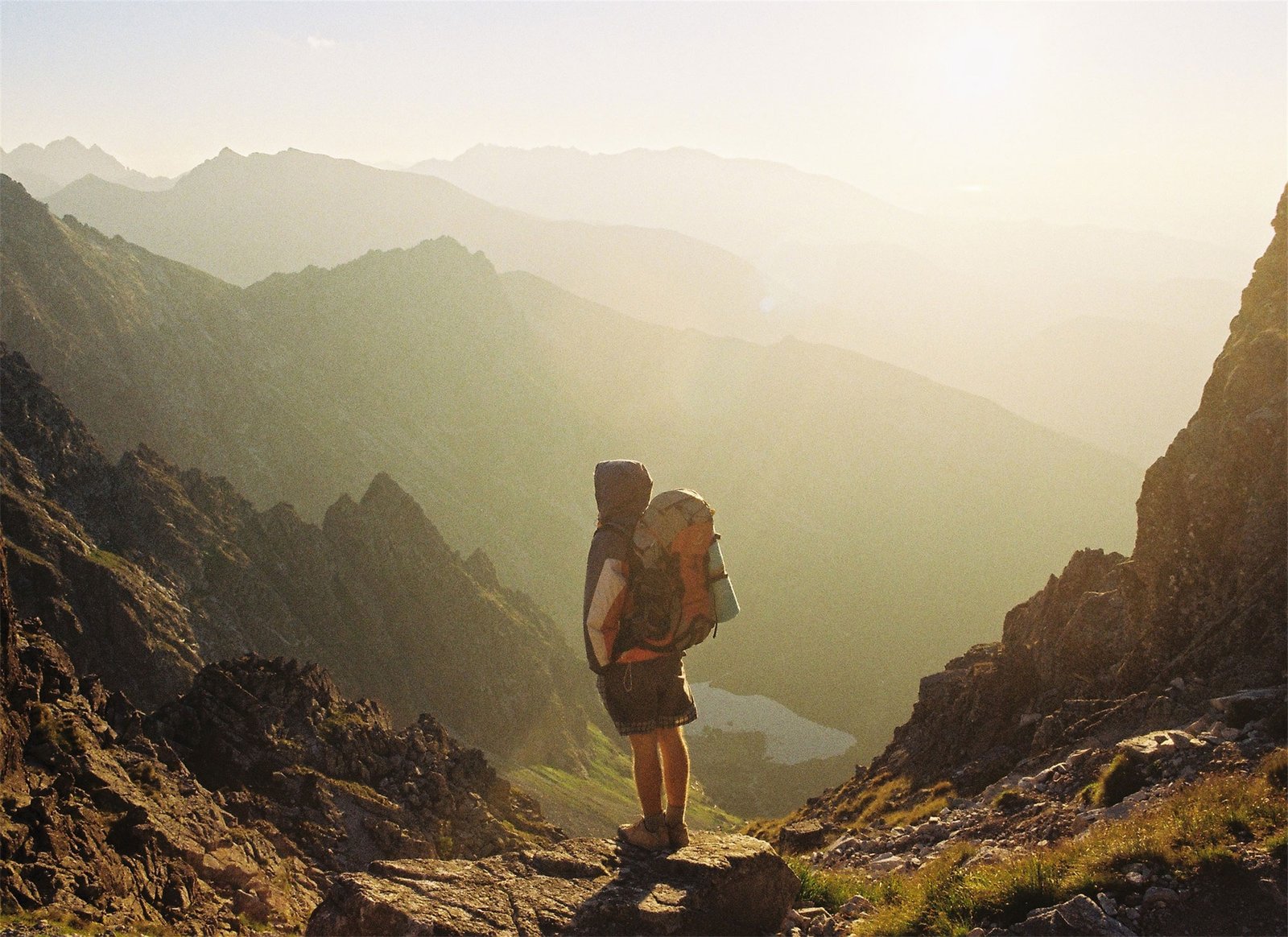You're about to undertake a backpack hunting adventure that demands rigorous preparation, strategic planning, and a deep respect for the wilderness. To succeed, you'll need to identify logistics challenges, study topographic maps, and prepare for unpredictable weather conditions. You'll need to prioritize safety, packing smart, and staying flexible in the face of unexpected situations. Mastering stalk patterns, ambush tactics, and reading body language will be vital to a successful hunt. As you venture deeper into the wilderness, you'll discover that physical and mental preparation are just as essential as the gear on your back. The journey ahead will test your endurance, stamina, and mental clarity – but the reward is worth it.
Key Takeaways
- Prioritize logistics planning, including route selection and weather preparation, to ensure a safe and successful hunt.
- Pack essential gear, such as a reliable rifle and water purification system, and maintain equipment to prevent malfunctions.
- Master stalking patterns, ambush tactics, and reading body language to increase chances of a successful hunt.
- Develop physical and mental endurance through cardio and strength training, as well as mental preparation, to tackle rugged terrain and heavy packs.
- Follow wilderness survival and ethics guidelines, including shelter building, fire starting, and minimizing human waste impact, to ensure a responsible and safe hunt.
The Thrill of Backpack Hunting
As you strap on your backpack, loaded with everything you need to survive, you're not just hunting – you're venturing on an adventure that tests your resolve, endurance, and connection with the wilderness. This is what draws you to backpack hunting, an experience that's as much about the journey as the thrill of the hunt. You're willing to push your limits, to suffer a little, to reach the most remote and untouched hunting grounds. The Wild Hunts are calling, and you're answering. It's not just about bringing home the bacon; it's about the Hunter Reflection that comes with immersing yourself in nature. You're seeking a deeper connection with the land, and with yourself. The wilderness is your playground, and the hunt is just the beginning.
Planning for Remote Hunts
You're not just scouting for game, you're scouting for a suitable base camp, one that balances accessibility with remoteness, and proximity to hunting grounds with protection from the elements. A well-chosen campsite can make all the difference in a successful hunt.
When planning for remote hunts, consider the following key factors:
- Logistics Challenges: Identify potential obstacles, such as rugged terrain, inclement weather, and limited access to resources.
- Route Finding: Study topographic maps and GPS data to find the most efficient and safest routes to your hunting grounds.
- Weather Contingency: Prepare for unpredictable weather conditions by packing essential gear and having a plan B in case of emergencies.
- Contingency Planning: Develop a plan for unexpected situations, such as injuries or gear failures, to guarantee a safe and successful hunt.
Packing for Success
When venturing into the backcountry, every ounce of gear counts, and a well-packed backpack can be the difference between a successful hunt and a disastrous one. You'll want to prioritize Gear Essentials like a reliable rifle, sturdy tent, and warm sleeping bag. Don't forget to balance your Load Balancing by packing heavier items at the bottom and closer to your back. Here's a suggested packing list to get you started:
| Category | Item | Weight |
|---|---|---|
| Shelter | Tent, sleeping bag, pad | 5 lbs |
| Clothing | Insulating layers, rain gear | 3 lbs |
| First Aid | Basic kit, blister care | 1 lb |
| Navigation | Map, compass, GPS | 1 lb |
Remember to pack smart, not hard. Every item should serve multiple purposes to minimize weight and maximize space. With a well-packed backpack, you'll be ready to take on the wilderness and bring home the bacon.
Strategies for Spot-and-Stalk
Spotting and stalking prey in the backcountry requires a hunter's undivided attention, as a single misstep can send your quarry fleeing in an instant. You need to be fully present, aware of your surroundings, and prepared to adapt quickly.
Here are some strategies to improve your spot-and-stalk game:
- Master Stalk Patterns: Learn to move quietly, using natural cover and concealment to get close to your prey.
- Use Ambush Tactics: Identify prime ambush locations, such as game trails, water sources, or feeding areas, and set up quietly to wait for your quarry.
- Read Body Language: Pay attention to the body language of your prey, looking for signs of alertness or relaxation to inform your approach.
- Stay Flexible: Be prepared to adjust your strategy based on the situation, terrain, and behavior of your prey.
Adapting to Terrain and Prey
As you adapt to the terrain and prey, your hunting strategy must morph to match the landscape and the animal's behavior, requiring a deep understanding of how both interact. You need to factor in terrain nuances, such as elevation, vegetation, and water sources, which can impact prey patterns. For example, deer may avoid areas with thick underbrush, while elk may prefer open meadows.
| Terrain Feature | Prey Behavior |
|---|---|
| Steep slopes | Deer may avoid, while elk may traverse |
| Dense forests | Deer may hide, while elk may move through |
| Water sources | Both deer and elk may congregate |
| Open meadows | Elk may graze, while deer may rest |
Safety in Grizzly Country
Prior to entering grizzly country, you must prioritize safety procedures over hunt plans, recognizing that grizzlies will fiercely defend their territory and any potential food sources. A bear encounter can be deadly, so it's vital to take necessary precautions. Understanding grizzly behavior is key to avoiding conflicts.
Make noise while hiking to avoid surprising grizzlies
Stay in groups and avoid solo hiking
Avoid areas with known grizzly activity or recent bear signs
Keep a clean campsite and store food and trash properly
Physical Preparation Is Key
You'll need to be in top physical condition to tackle the demands of backpack hunting, as the rugged terrain and heavy packs will push your body to its limits. As an outdoor athlete, your fitness goals should prioritize building endurance, strength, and agility. A well-structured training program will help you prepare for the physical demands of backpack hunting.
| Fitness Goals | Training Recommendations |
|---|---|
| Cardiovascular Endurance | Run or hike 3-4 times a week, 30-45 minutes per session |
| Strength Training | Focus on leg and core exercises, 2-3 times a week |
| Flexibility and Mobility | Incorporate stretching exercises, 2-3 times a week |
| Balance and Coordination | Practice balance exercises, 2 times a week |
| Overall Fitness | Gradually increase pack weight and hiking distance, 1-2 times a week
Essential Gear for Hunters
Your gear list should include lightweight, functional, and reliable equipment that won't weigh you down or fail when you need it most. As a backpack hunter, you can't afford to carry unnecessary weight or risk equipment failure.
- Pack innovations like compression sacks and roll-top bags help minimize bulk and keep gear organized.
- A water purification system provides access to safe drinking water.
- A lightweight tent and sleeping system provide shelter and comfort in the backcountry.
- Regular gear maintenance is vital to extend the life of your equipment and prevent malfunctions.
Building Endurance and Stamina
As you prepare for your backpack hunting adventure, essentially, building endurance and stamina is paramount, as the physical demands of hauling heavy loads over rugged terrain can quickly drain even the fittest hunters. You'll need to develop the cardiovascular endurance to tackle steep inclines and traverse rough terrain while carrying a heavy pack. Cardio training, such as running, cycling, or swimming, will help increase your stamina. Strength building exercises, like squats, lunges, and deadlifts, will also help you build the strength needed to haul heavy loads. Incorporate high-intensity interval training to simulate the physical demands of backpack hunting. By focusing on cardio training and strength building, you'll be better prepared to tackle the physical challenges of backpack hunting and increase your chances of success.
Mental Preparation for the Hunt
While building physical endurance is vital, it's equally important to mentally prepare for the challenges of backpack hunting, where solitude, uncertainty, and physical exhaustion can test your resolve and focus. As you venture into this wild adventure, cultivating a strong mental game is vital to stay focused and composed under pressure.
- Develop a Hunter's Mindset: visualize success, stay adaptable, and remain open to unexpected challenges.
- Cultivate Mental Clarity: prioritize clear thinking, even when fatigued, to make sound decisions in the field.
- Practice Self-Discipline: push through physical and mental exhaustion to stay committed to your goals.
- Embrace Solitude: find comfort in the quiet, using the alone time to recharge and refocus.
Mastering Wilderness Survival
What skills do you possess to stay alive in the wilderness when your hunt doesn't go as planned, and you're faced with harsh weather, limited supplies, and no clear route back to civilization? Mastering wilderness survival is vital for backpack hunters. This knowledge is imperative for respecting the land and its creatures, and possessing Survival Skills to stay alive.
| Survival Skills | Wilderness Ethics |
|---|---|
| Building a shelter | Respect for wildlife habitats |
| Starting a fire | Minimizing human waste impact |
| Finding water sources | Leaving no trace |
| Signaling for help | Preserving natural resources |
| Staying warm and dry | Protecting endangered species |
Community Resources for Hunters
You can tap into a wealth of knowledge and resources from experienced backpack hunters, outdoor enthusiasts, and conservation organizations to elevate your hunting game and stay connected with like-minded individuals. Whether you're looking for inspiration from Hunt Stories, seeking advice on Online Forums, or wanting to stay updated on the latest gear and techniques, there's a community out there for you.
- Join online forums and social media groups dedicated to backpack hunting, such as the Backpack Hunting subreddit or Facebook groups like Backpack Hunters United.
- Follow experienced hunters and outdoor enthusiasts on social media to stay inspired and learn from their experiences.
- Attend hunting workshops, seminars, and conferences to network with other hunters and learn from industry experts.
- Read hunting blogs, podcasts, and publications to stay informed on the latest gear, techniques, and conservation efforts.
Frequently Asked Questions
What Is the Best Way to Deal With Inclement Weather on a Hunt?
When facing inclement weather on a hunt, you'll want to prioritize Weather Forecasting to plan ahead, then pack Rain Gear Essentials like waterproof jackets and pants to stay dry and focused on your hunt.
How Do I Handle a Bear Encounter While Backpack Hunting?
When facing a bear encounter while backpack hunting, prioritize safety protocols: stay calm, give bears space, and avoid direct eye contact. Carry bear deterrents like pepper spray and know attack protocols, but prevention is key – be aware of your surroundings and make noise while hiking.
What Are Some Effective Ways to Preserve Meat in the Backcountry?
When preserving meat in the backcountry, you'll need to act fast; prioritize field dressing to cool the carcass, then consider meat curing methods like salting or smoking to prevent spoilage.
Can I Use Regular Backpacking Gear for Hunting, or Do I Need Specialized Equipment?
You can use regular backpacking gear for hunting, but optimize your pack with gear compatibility in mind; prioritize lightweight, functional equipment, and consider specialized hunting gear for tasks like meat transport and storage.
How Do I Handle Emergencies or Injuries While Hunting in Remote Areas?
When hunting in remote areas, you should always carry a First Aid Kit and know basic Wilderness Survival skills. In case of an emergency, use an Emergency Whistle to signal for help and consider carrying a Satellite Phone for Medical Evacuation.
Conclusion
As you shoulder your pack, the wilderness beckons. You've planned, packed, and prepared. Now, it's time to adapt, to stalk, and to conquer. Your endurance will be tested, your skills will be pushed, and your resolve will be tried. But with every challenge, the reward grows. The thrill of the hunt, the rush of adrenaline, and the satisfaction of self-reliance await. Step into the unknown, and let the wild adventure begin.









